The National Assembly's Committee on Culture and Education supervises departments and branches in Nghe An
(Baonghean.vn) - On the morning of July 19, the Supervisory Delegation of the National Assembly's Committee on Culture and Education, headed by comrades Nguyen Thi Mai Hoa and Ta Van Ha - Vice Chairmen of the National Assembly's Committee on Culture and Education, had a working session with the departments of Labor - Invalids and Social Affairs, Culture and Sports, and Tourism.
Investing resources in children's work and vocational education
Working with the National Assembly's Supervisory Delegation, the Department of Labor, War Invalids and Social Affairs reported on the results of implementing legal policies on child protection, care, education and vocational education in Nghe An province in the period 2016-2020 and 2021.
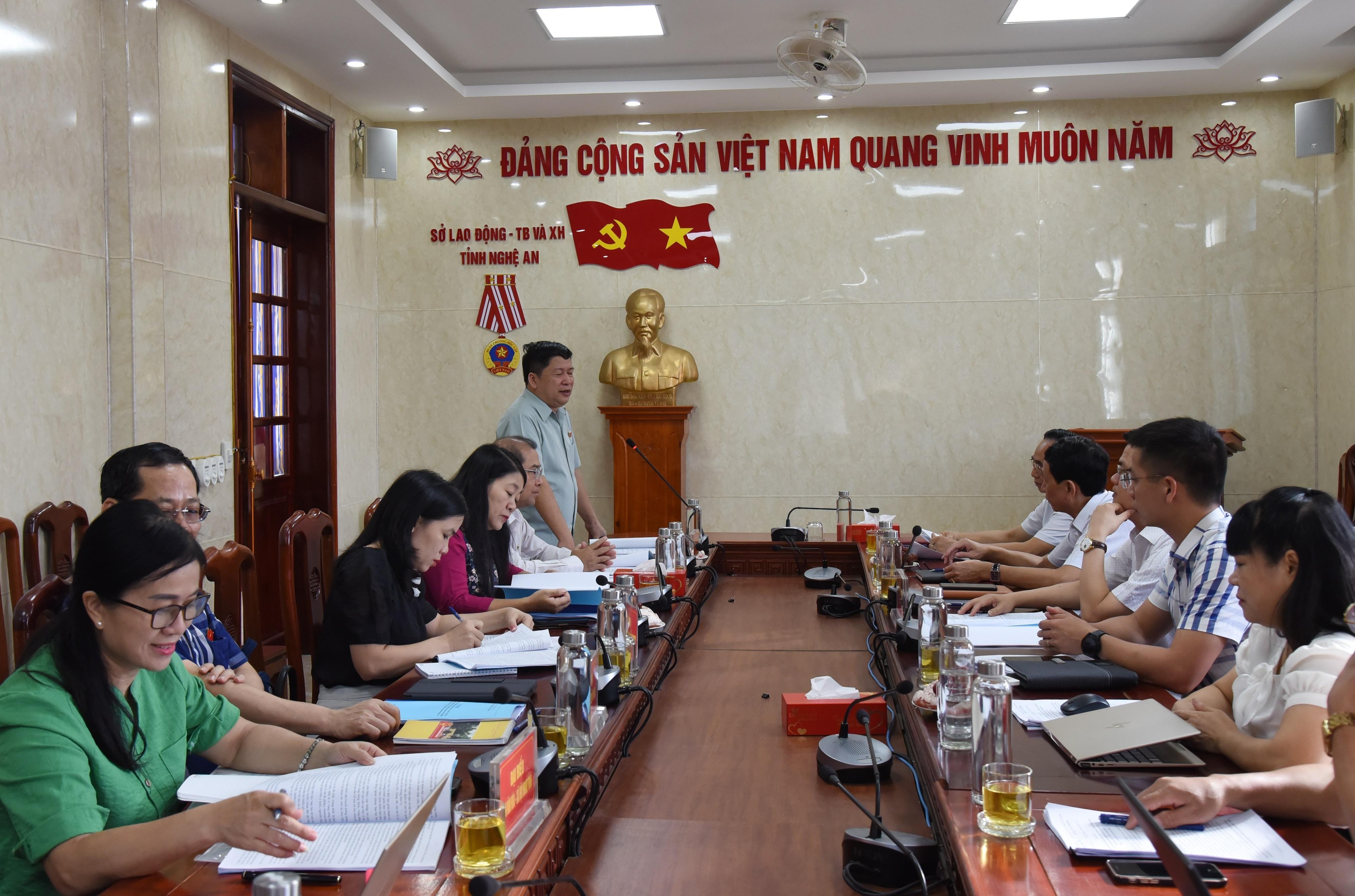 |
The Supervisory Delegation worked with the Department of Labor, War Invalids and Social Affairs. Photo: Thanh Le |
In recent times, the work of protecting, caring for and educating children in the province has received leadership and direction from Party committees and authorities at all levels and has achieved many important results. Children are increasingly cared for, protected and educated better by their families, communities and the whole society.
Regarding vocational education, the province currently has 62 vocational education institutions including: 9 colleges, 13 secondary schools, 21 vocational education centers and 19 other institutions participating in vocational training. The enrollment and training scale of vocational education institutions in the province is 88,530 students/year; of which, vocational colleges: 7,955 students/year; vocational secondary schools: 15,655 students/year; primary and training: 64,920 students/year.
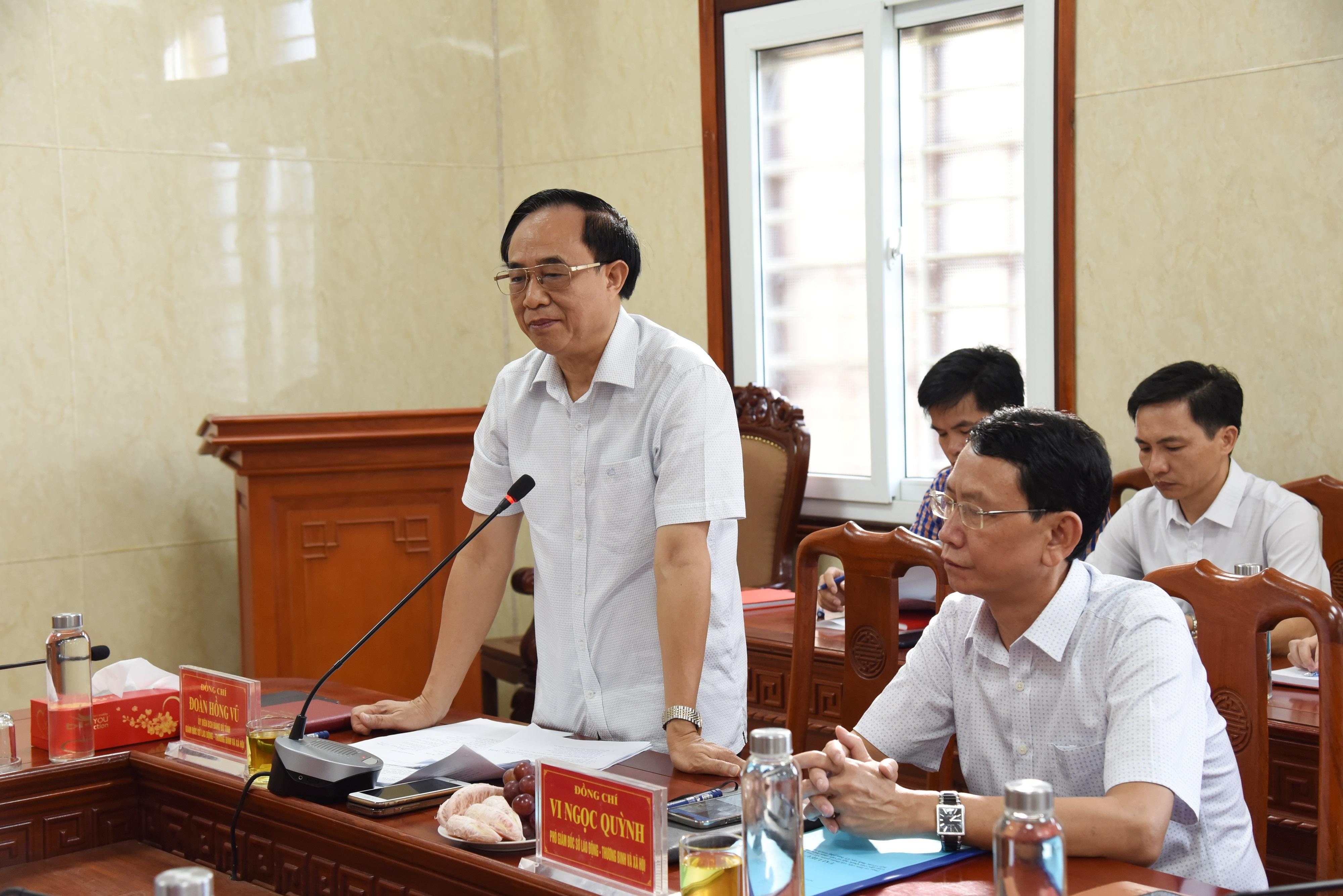 |
Comrade Doan Hong Vu - Director of the Department of Labor, War Invalids and Social Affairs discussed the content of the monitoring delegation's interest. Photo: Thanh Le |
Besides the achieved results, vocational education at vocational training institutions in the province still has some shortcomings and limitations.
From analyzing the results, limitations, and drawing out the causes, the Department of Labor, War Invalids and Social Affairs proposed that the Government study resources for functional forces in the work of preventing and combating crimes and violations of child abuse, especially funding for fighting cases, organizing rescues and supporting victims of abuse.
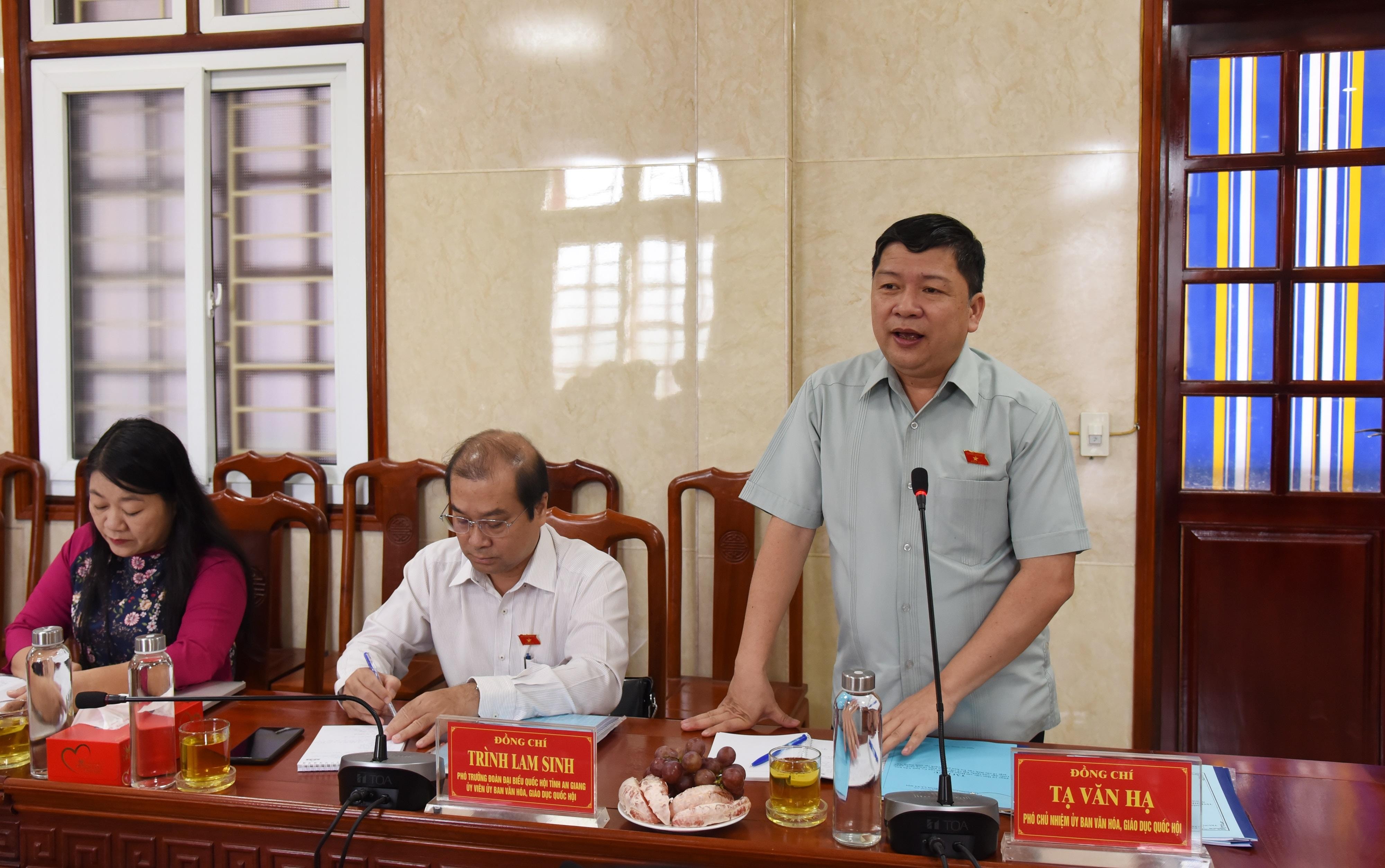 |
Comrade Ta Van Ha - Vice Chairman of the National Assembly's Committee on Culture and Education received the proposal of the Department of Labor, War Invalids and Social Affairs of Nghe An province. Photo: Thanh Le |
Along with that, research policies to provide material and spiritual support for families of abused children from poor and near-poor households; incorporate regulations on "buying and selling fetuses" into legal documents to suit the practical situation; direct localities to arrange staff to do the work of protecting, caring for and educating children at the commune level.
Regarding vocational education, the department proposed that central ministries and branches supplement vocational training policies at college and intermediate levels for young people who have completed military service, police service, and youth volunteers.
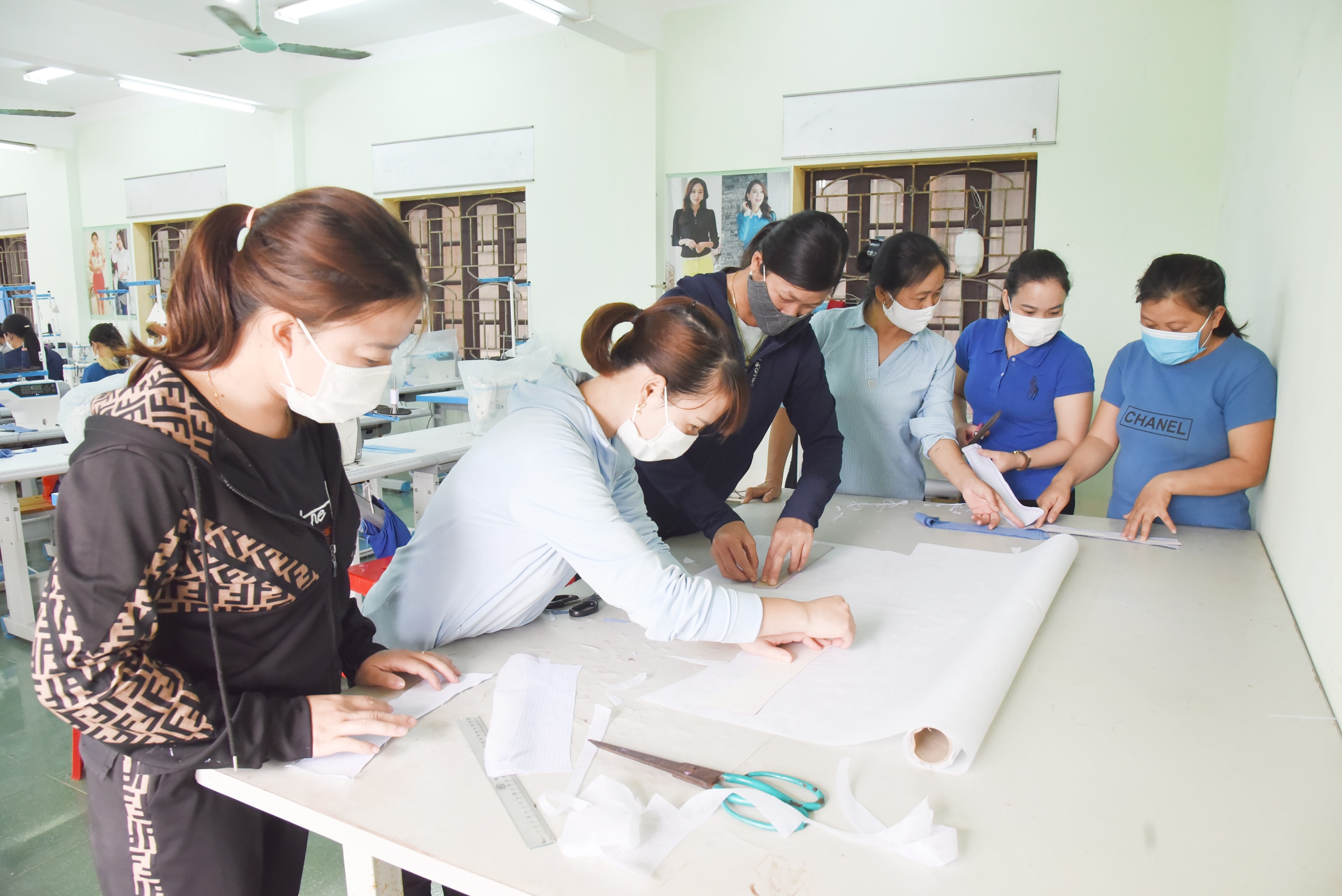 |
Workers in Dien Chau district learn sewing. Photo: Thanh Le |
In addition, it is necessary to issue documents regulating vocational training institutions to ensure conditions for organizing teaching at public vocational training institutions, especially colleges and intermediate schools, and preferential policies for ethnic boarding schools; issue specific guiding documents on the rights and responsibilities of enterprises according to the provisions of the Law on Vocational Education. There is a mechanism to attract teachers with high qualifications and skills to teach at vocational training institutions. Pay attention to allocating resources to support investment in facilities and equipment for vocational training institutions,...
Promoting the value of cultural relics associated with tourism
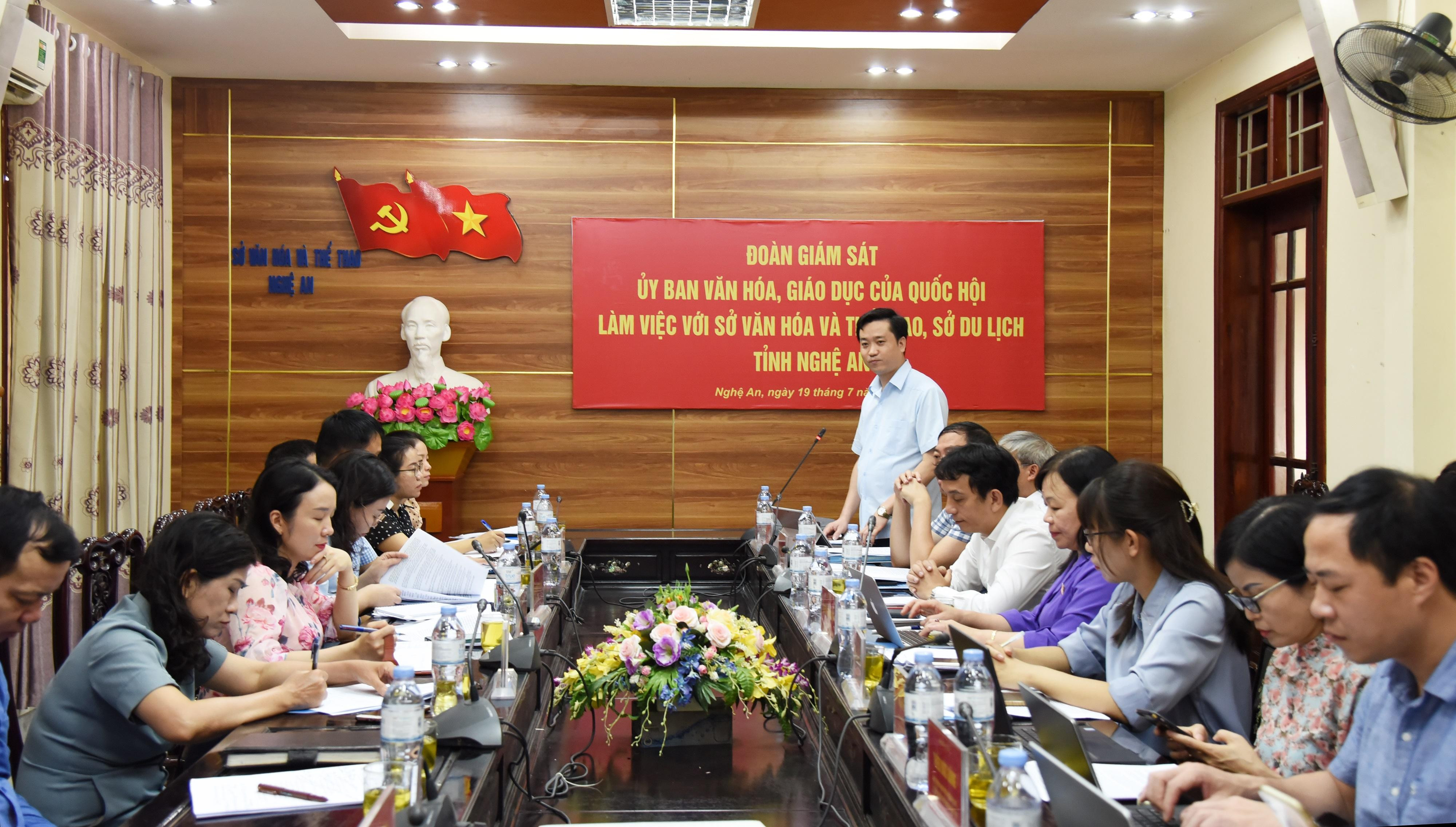 |
The Supervisory Delegation worked with the Department of Culture, Sports and Tourism. Photo: Thanh Le |
Nghe An currently has 2,602 relics and scenic spots, of which 471 are ranked (including 5 special national relics, 144 national relics and 322 provincial relics); of which, there are typical relics and scenic spots such as: President Ho Chi Minh Memorial Site in Kim Lien, Phan Boi Chau Memorial Site, Hoanh Son communal house, Cua Lo beach scenic spot, Pu Mat National Park scenic spot...
Nghe An is also a place that preserves many documents and artifacts about national history and culture with more than 31,000 artifacts being preserved at Nghe An Museum, including 3 National Treasures. Nghe Tinh Soviet Museum is the only specialized museum in the country that preserves documents and artifacts related to the Nghe Tinh Soviet movement 1930-1931.
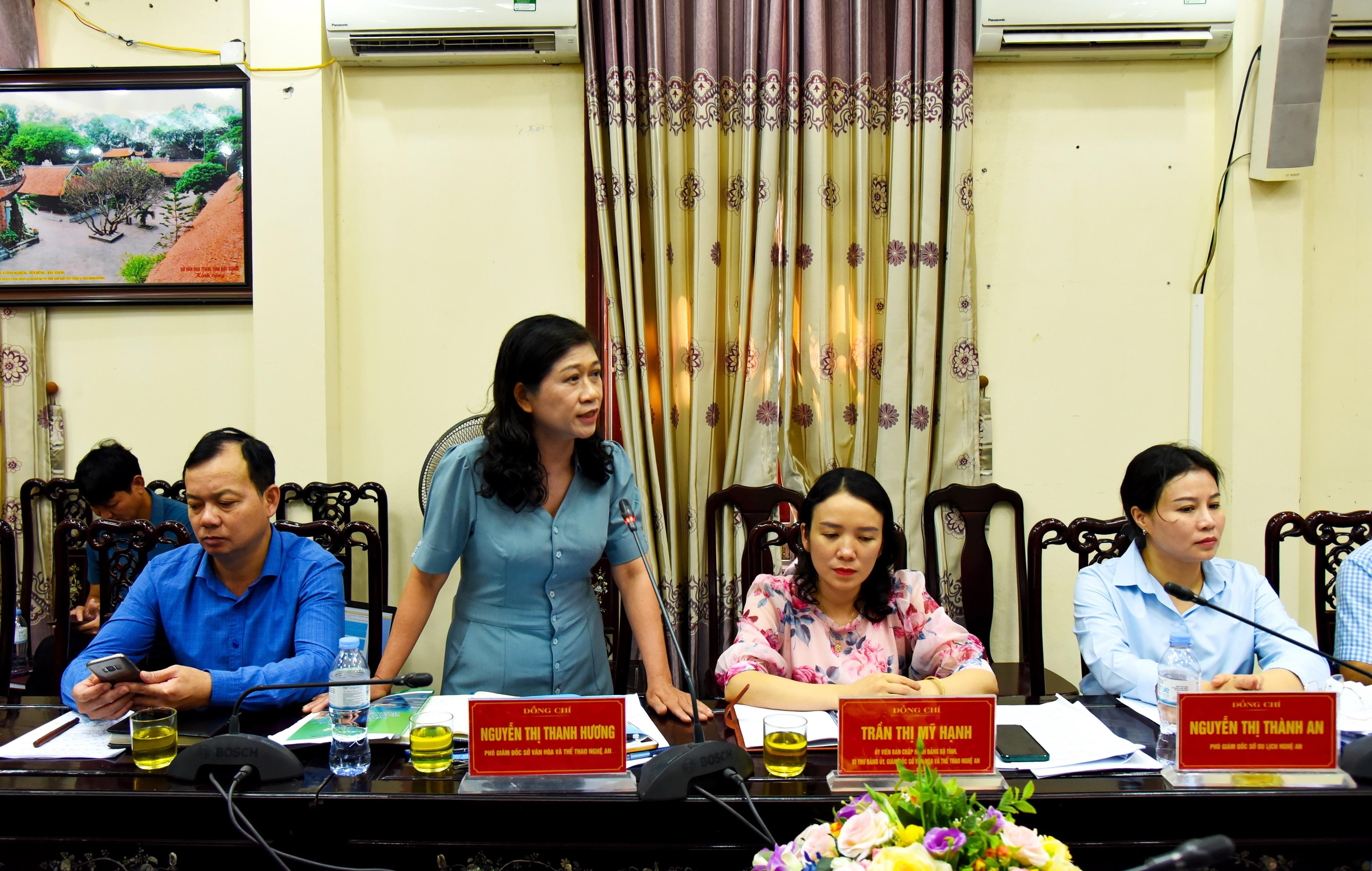 |
Representatives of the Department of Tourism clarified issues of concern to the monitoring team. Photo: Thanh Le |
Nghe An is located in the cultural region of Nghe An with its own identity, where there is a diversity of cultural colors of 6 ethnic groups. The system of intangible cultural heritage of ethnic minorities in Western Nghe An is extremely rich such as folk songs, folk music, folk dances, beliefs, folk knowledge... along with the Kinh ethnic group still preserving many traditional cultural features, with national intangible cultural heritages such as Con Temple Festival, Thanh Liet Temple Festival, Xang Khan Festival... In which, the most typical and unique is Nghe Tinh Vi and Giam folk songs, which were recognized by UNESCO as a representative intangible cultural heritage of humanity.
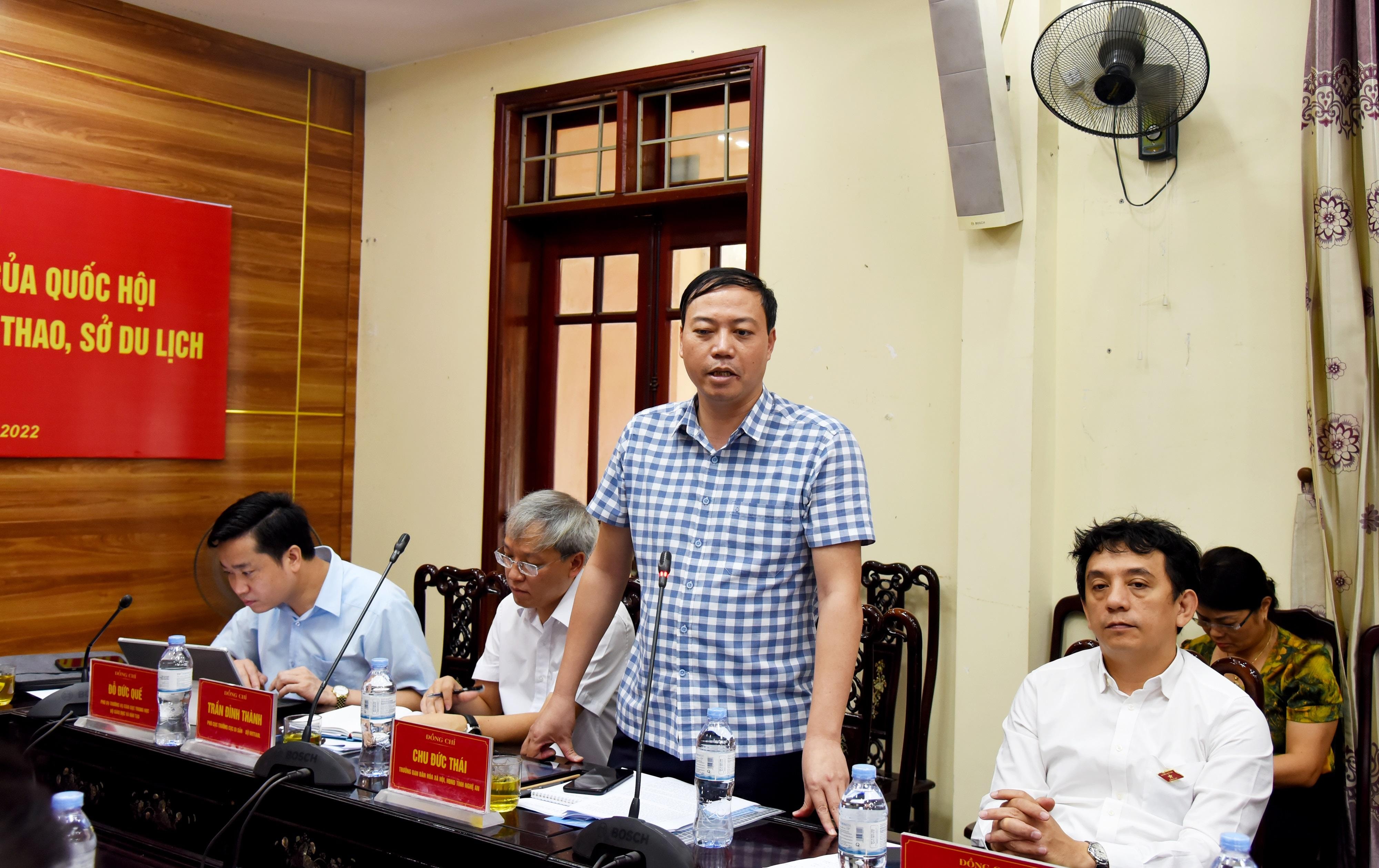 |
Comrade Chu Duc Thai - Head of the Culture - Social Committee of Nghe An Provincial People's Council proposed policies to preserve historical and cultural relics and policies for artisans. Photo: Thanh Le |
According to the report of the Department of Culture, Sports and Tourism, the current legal system on culture and sports has been relatively complete, creating a legal corridor for cultural and sports activities. Many new policies have been introduced, creating conditions for all organizations and individuals to participate in cultural and sports activities, ensuring the freedom of creativity of citizens, contributing to the socio-economic development of the locality, improving cultural and spiritual life, serving the cause of building and defending the Fatherland.
However, up to now, many legal documents on culture and sports are still inadequate and need to be further amended and supplemented to perfect the legal system, meet the demands of society and State management such as: Law on Cultural Heritage, Law on Cinema, Law on Advertising, Law on Prevention and Control of Domestic Violence... Some specialized fields are currently regulated by Government Decrees and need to be developed into laws such as: Performing arts, fine arts, photography and exhibitions... to create a legal corridor for unified and effective implementation.
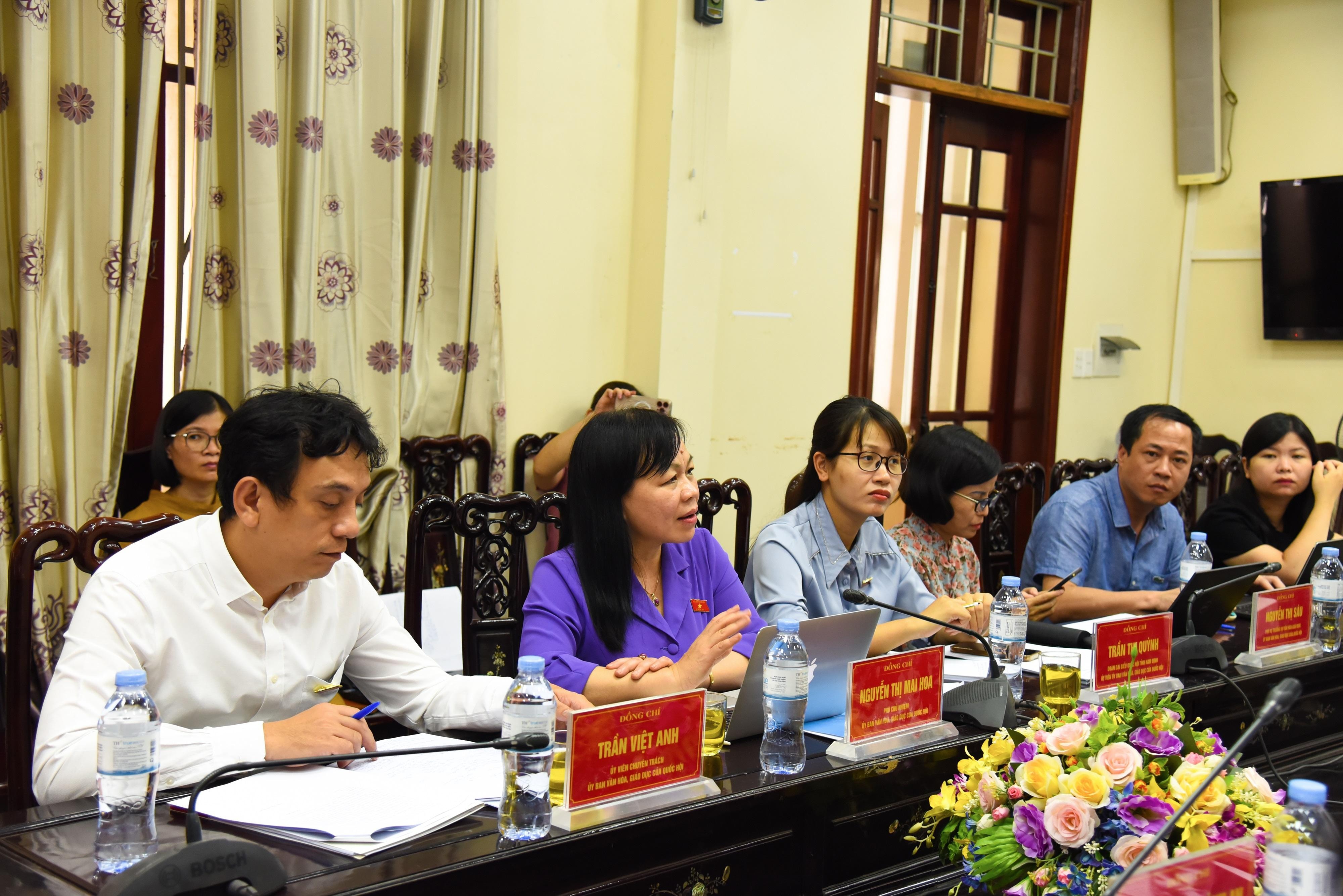 |
The National Assembly's Committee on Culture and Education's Supervisory Delegation works at the Department of Culture and Sports. Photo: Thanh Le |
Therefore, it is recommended that relevant ministries and branches review, amend and issue new Circulars providing specific and detailed guidance on the articles in the Law on Physical Training and Sports, ensuring legality and reasonableness, close to reality, and avoiding difficulties in implementation.
The Department of Culture and Sports proposed that the Supervisory Delegation recommend that ministries, branches, the National Assembly and the Government pay attention to allocating investment funds for revolutionary relics; funds for heritage relic systems are decentralized from the national budget; have separate mechanisms and policies for investing in cultural institutions at the grassroots level after merging administrative units, especially in ethnic minority areas; funds for investing in cultural institutions for children in ethnic minority areas; pay attention to digital transformation in the fields of culture and sports; invest in sports training facilities.
Along with that, there needs to be mechanisms, policies, and resources to exploit and promote the value of relics and cultural heritage associated with tourism development; care and policies for artisans; preserve and promote Vi and Giam folk songs; preserve intangible cultural heritage,...
In his concluding remarks at the working sessions, the representative of the National Assembly's Committee on Culture and Education acknowledged and highly appreciated the results of the departments and branches in Nghe An in implementing the Party and State's policies and guidelines on the fields under supervision. The Supervisory Delegation of the National Assembly's Committee on Culture and Education acknowledged and accepted the units' contributions, suggestions and proposals to advise the Government, the National Assembly, relevant ministries and branches to perfect the mechanisms, policies and laws for these fields with high feasibility.


